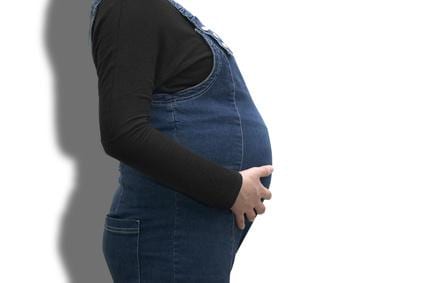According to the U.S. Department of Health and Human Services, approximately 13 percent of pregnant women suffer from depression, a serious illness that is not likely to improve without treatment. Research has shown that untreated depression during pregnancy can increase the risk of preeclampsia, a type of high blood pressure that occurs during pregnancy, poor weight gain, as well as the use of drugs or alcohol to self-medicate and, even, suicide.
Symptoms
The symptoms of depression during pregnancy include feelings of sadness, moodiness, feeling overwhelmed, frequent crying, insomnia or sleeping too much, lack of energy or motivation. Some people experience difficulty focusing, remembering or making decisions. Withdrawal from friends and family or activities previously enjoyed and physical problems, such as headache or stomach ache, disordered eating and feelings of guilt or excessive worry can also be indicators of depression.
Causes
For a long time, it was believed that pregnancy hormones protected women from depression until after the baby was born. When the hormone levels dropped, women became vulnerable for depression. A 2001 study of 9,000 pregnant women, conducted at the University of Bristol and published in the “British Medical Journal,” supports the concept that women are also vulnerable during pregnancy due to the rapid increase in hormone levels at the beginning of pregnancy. This increase of hormones has the potential of disrupting brain chemistry and causing depression.
Risk Factors
According to the National Institute of Mental Health (NIMH), women who have previously suffered from depression or who have a family history of depression are more prone to depression during pregnancy. Loss of a previous pregnancy and treatment with fertility drugs can also make a woman more likely to experience depression during pregnancy. Women who are experiencing a particularly difficult pregnancy that has complications or is considered high-risk may experience depression. As with all depression, women in abusive relationships, without emotional support, or those who are isolated from friends and family, are at high risk.
Treatment
It is important to seek professional help if you think you may be suffering from depression during pregnancy. Your doctor can suggest appropriate treatment. Generally, psychotherapy and antidepressant medications are used to treat depression during pregnancy. It is important to be certain that your doctor or treatment provider (generally a psychologist, psychiatrist or social worker) knows that you are pregnant. Only certain antidepressant medications are approved for use during pregnancy.
Prevention
By taking good care of yourself, the risk of depression during pregnancy can be reduced. Should it occur, however, you should not feel guilty because it is a biochemical condition that cannot always be avoided. It is important to get plenty of rest and to eat properly. Talking with friends and family members about what you are feeling can also be helpful. It is important to manage your stress and get appropriate exercise.
Photo Credit
- pancia image by CORRADO RIVA from Fotolia.com





